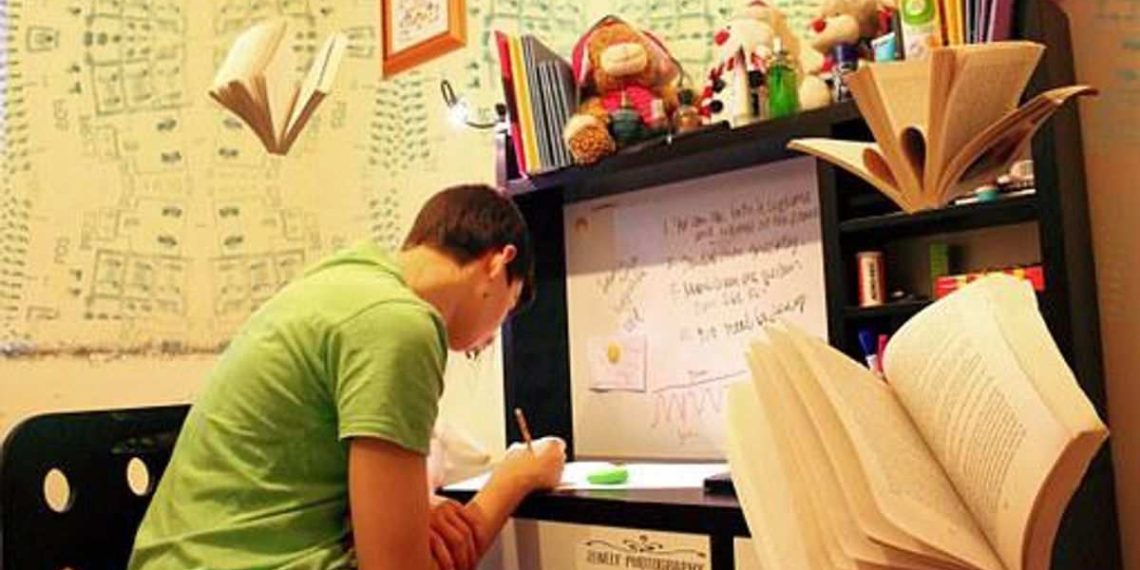When students ask me to impart their tips for studying effectively, My partner and I compare our minds using an MP3 player. When we study, all of our minds can fill right up like an MP3 player. Once you realize hitting a storage control, you can do something about it.
If you’re going in new ideas into the mind like mp3 in an mp3 player, there will occur a point when you can’t retail any more information – at the least temporarily. Many students whip themselves up over that. Instead of self-torture and enduring, I suggest being productive.
What now? when you’re mp3 player is full and also you still want the contents? Many move the contents on their computer’s hard drive. When new ideas are MP3s, then we can say our i-pod mp3 player is short-term memory and also our hard drive is long-lasting memory. A helpful query to ask when you hit a report limit is, “How am I able to best move these fresh ideas (mp3’s) from our short-term memory (mp3 player) into my long-term storage (hard drive)? ”
Word of advice #1: Sleep
They learned about Stanford University’s top learners and were surprised by means of how many hours they rested well. On average, each slept nine hours every day. Its value repeating; they discovered learners who consistently get immediately As at one of This country’s top universities slept main hours a day.
They observed when we get a healthy degree of sleep, the information we take up during the day, short-term memory obtains downloaded and processed dark in our long-term memory. On a daily basis, we repeat and work with information in short-term ram is another download into all of our long-term memory with getting to sleep. That doesn’t necessarily mean we retain the information forever. Over time in addition to repetition, the once clumsy and unfamiliar ideas are more comfortable and familiar because the days pass. Sleep permits this to happen.
During the day, concepts and experiences may accumulate and float around just like movies in our heads. You could have noticed after a good night’s sleep those ideas and also experiences settle. The night before you could have felt mentally unhealthy and also unable to study further. As a result of the miracle of sleeping, when you wake up you feel far better and can continue studying. That will mental clutter was structured and sunk in. These ideas (mp3’s) moved coming from short-term memory (mp3 player) to long-term memory (hard drive). The action to take for getting this relief: get main hours of sleep.
Word of advice #2: Exercise
You may truly feel burned out because your mind is definitely exhausted. If ideas are stressful spinning around in your head many people consume energy. At that point, I recommend going for a quick jog. Want to do something physical because while you functioned your mental muscles and you will probably have neglected your real muscles. Your body may have been relaxing dormant the whole time. After you jog or do something real, you get out of your head and also re-energize your body.
Let’s say each and every part of our body uses 2% energy (oxygen, vitamins and minerals, etc). Relatively speaking, the brain uses 20% of our body’s energy. One significant artery runs down each and every leg. 2 major and also 2 minor arteries increase in our brain. Notice how the size of one leg in comparison to what’s inside your head. Once we run out of oxygen, exactly what is the main concern to our health and fitness? Not enough oxygen to the mind. Brain damage. Once the mental runs out of oxygen the item can’t run the rest of the programs in our body and we cease to live. Our brain is energy huge. So what we have to do if we’re burned out studying is definitely shut it off for a little bit. Let it cool down.
Have you ever seen when too many programs are designed with a computer it slows down? Desktops usually heat up and slow when they are overworked in addition to can’t process anymore. If a computer gets to that point one of the better things to do is to turn it down. Let it rest. When you convert the computer on again, storage has freed up and it’s really ready to continue working.
The brain can also get to an area where it’s over proved helpful and can’t process anymore. It too heats up and also slows down. It can no longer deal with new information or fix more problems. Though we all can’t turn off our human brain like a computer to get back resources. What we can do is definitely redirect our resources clear of the abstract world of all of our minds to the concrete major of our physical body. When we do this, we give our mind a break and allow blood in addition to oxygen to circulate to re-energize us.
If you take that little bit to jog, shower, as well as bring awareness back into your entire body, you’ll notice your quick memory (mp3 player) features more energy to take in additional information (mp3s). Continuing the comparison of our minds to an i-pod mp3 player, our mp3 player’s (short-term memory) battery was jogging low. After recharging that (physical exercise), we were capable of continuing to load mp3s (new ideas).
Tip #3: Compose
They say our short-term storage can only hold five as well as or minus two concepts at a time. More simply, we can simply hold three to more effective ideas at a time depending on the circumstance. (This is one of the reasons why regional phone numbers are only seven numbers. If they were longer, we may forget. ) If the mind is thinking about other activities we have to do, then all of those to-do items is actually taking up a slot we’re able to be used for studying.
When it comes to our mp3 player comparison when we have three loading slot machines and all three are launching mp3s (new ideas we have to study for) then we are able to say we’re loading in 100%. If we start launching two other items (other ideas), our loading period slows by two-thirds. When we have three loading slot machines in our short-term memory (mp3 player) and two slot machines are used to remember to reply to a friend’s email and remove the trash, how many slot machines do we have to study (load mp3s)? One. Our mastering time crawls at an excruciating pace versus if individual slots were free to absorb, organize, and play with details.
So how do we free up individuals’ memory slots and quicken our study time? Find a blank piece of paper and another to write with. Write every little thing down that’s running around in your mind. Write down every little thing until really all down on paper. Applying our previous example, we may write down: Reply to a friend’s electronic mail and take out the trash. This may immediately free up those constrained resources to use while mastering.











